|
Enhanced
Hopes from Shake
Up!
(Reflections on the 2014 NZAEE National Conference
held in Christchurch Jan 15-17)
Place
Christchurch. My place 1966-1986 from age 18 – the latter 17 years as
a postie and a meter reader biking and walking all its streets, visiting
tens of thousands of households year-in-year-out. I used to be immersed
in the stuff of this place and now it informs so much of my being.
January
2014 and my arse is sore from biking this place. Grass flourishes and
summer weeds flower where footpaths and mail boxes and meter boards used
to connect households to the world. I still see the lives of the people
who used to dwell in these streets of non-existent houses.
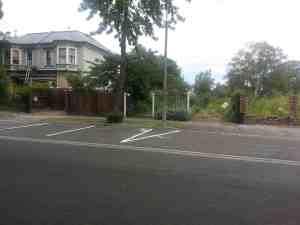
My first student flat has vanished. In 1968 my flat mate and I
inadvertently set off the largest student demonstrations in NZ history
when we discovered NZ's little known involvement in the US Omega
Guidance System might make us a nuclear target because the Polaris
Submarine fleet probably used it.
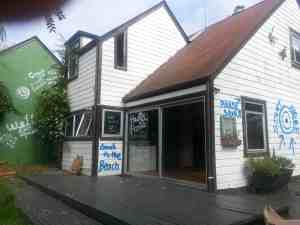
Our home at Creekside Community for six years awaits demolition.
The land in this area of Christchurch has dropped 600mm while river
bottom levels have risen 500mm.
I walk
through my last home in Creekside community. Like other houses there, it
is vacant awaiting the bulldozer, covered with messages of love from
past inhabitants. Graffiti that resonates with rare meaning for me. (I
am a school caretaker and I cannot afford to know the meaning of
graffiti that I clean off the school walls and signs. It may communicate
greater wisdom than our education system does and to know this would
tear me up.)
Acres
of barren, dusty, stony desert where Christchurch CBD used to be. I
return to this blitzed area of the city many times. Alone. Just what is
this deep, profound silence I experience in this place? I know I walk
where many people died in the earthquake. I know so many households were
transformed into confusion and anguish in a few twitches of the earth.
It is almost as though I am listening for something. Meaning? Time for
connections with my memories to occur? Distant
voices? Or is the silence a response to the enormity of the change?
People
warned me of the latter, “You will be shocked how the place has
changed since the earthquakes”. “You will be stunned and
disoriented,” they said. “You will have troubling finding your
bearings. I do”. They were wrong and perhaps I am listening to the
silence for an explanation. Am I unfeeling? It is possible I lack
compassion – that capacity is inherent in all human beings and the ego
is ingenious at disguising it.
I
feel the sun, watch the clouds and listen to the wind. The sun still
rises over the Heathcote estuary and sets over the Southern Alps. The
wind from the Antarctic is still cold and clean. The wind from Pegasus
Bay is still cool and insistent. The wind from the Tasman Ocean and the
Alps is still dry, hot and dusty. I have always been tuned to these
heavenly bearings in this place.
Perhaps
the answer lies beneath my feet? I resided on the various volcanic
rocks, shingle beds, swamps, aquifers and sand-dunes that this city is
founded upon. I remain aware of the geological mix and tectonic change
that makes this place unique. Perhaps the resulting sensations of
impermanence accounts for my lack of shock at the change?
Old
timers living in the marshlands and coastlands back in the seventies had
told me how these were known as the “badlands in the east” - places
humans should not live but the rich elite in the well drained west of
Christchurch found it convenient to house their labourers there.
Old market gardeners told me how their grandparents took drays loaded
with vegetables across the city to the Market at Addington and returned
from the adjacent city horse stables with their drays loaded with hay
and manure to make the swamps more fertile. Old timers recalled Maori
lore warning against living on these spaces while advising of their
considerable food potential.
When
I returned to this place in 2000 I was shocked to see this wisdom
ignored on scale. The population increase had exploded. (1966 240,000,
1986 290,000, 2001 335,000) Acres of new roofs and tarmac motorways
covered the jelly sand-dunes and fertile garden soils alike. And by 2000
I had become aware of the probability that human activities are
destroying the balances of the skies and oceans that sustain us. I now
knew that an enhanced tidal surge from some turbocharged storm in
Pegasus Bay might soon reach Cathedral Square and suck the foundations
from any buildings in its path. (2013 366,000 with nearby towns fast
growing since earthquakes.)
So
here I am standing in the CBD desert by Latimer square watching the
seeming endless stream of cars flow by. Perhaps I am not so shocked and
displaced by the demolition as many are because my bearings are more
rooted in the skies and earth? How many of these people insulated in
their speeding capsules are aware of where their food and water comes
from and how their vehicle is exquisitely designed to convert the
immense wealth potential of mineral oil into air pollution in most
efficient way? Probably
over 12000 New Zealanders have died in car crashes since I lived in this
place. Ten times that number have been crippled. Already this century
countless others have been murdered, maimed and starved in the conflicts
over access to the mineral oil required to sustain cars. Perhaps my
mindfulness of this carnage gives me a radical perspective of the
earthquakes?
My
state of being on Tuesday evening when I bike to CPIT to register for Shake
Up!
is this: awe at the transient state of all things; silence as
I reflect on the needless death and misery caused by the human ego with
all its ingenious deceits; wonder at the existence of life; a sense of keen
listening for answers to questions I cannot consciously formulate and a
sore arse from the hours of biking the streets of this place. The
tribulations I experienced at previous NZAEE conferences seem distant,
insignificant, even hilarious, in this state. I feel open to anything.
What will I learn? Will my beliefs be shaken up? Will NZAEE be shaken
up?
A
night’s sleep. Wednesday morning. Suddenly I am back in the Polytech
marae being welcomed by the conference organisers. They all wear the
high visibility vests worn by all the workers dismantling and
reconstructing the city. Is this a sign NZ Environmental Education is
being reconstructed too?
My diplopia makes it difficult to decide which of the duplicate faces I
suddenly see as I draw close to people to share the breath during the
hongi. I bang a couple of heads. My belated apologies now.
The
Ngai Tahu panel discussion provides a fascinating insight into the state
of our society. They are the next younger generation to mine and are
articulate, passionate and knowledgeable. They are aware of the irony
and humour in many situations. For instance, one member, a cousin of
Education Minister, Hekia Parata, spoke of how in the 1990s
Ngai Tahu could not even get cheque books from the banks and
sought the help of a PR consultancy. They were advised to strip away
symbols of their Ngai Tahu identity and promote themselves as a modern
corporation, which they did. She with her commerce degree became an icon
of the new corporatised Ngai Tahu. This advice worked in that many doors
now opened for Ngai Tahu.
Her
wry smile indicated she could clearly see the implicit power play and
denigration. However it became evident she is now part of this
unsustainable, privatising corporate culture as she enthused about
creating a year 1-13 campus for 1000 Maori students as a
response to their poor performance in Christchurch schools.
There are many reasons why Charter Schools are unsustainable. They tend
to destroy a sense of place. They are also founded in the related
delusions that there exists eternal cheaply extractable mineral oil and
that we can convert the wealth potential of this amazing mineral into
air pollution without care. In the last two decade New Zealand has
accumulated billions of dollars of debt to provide the needless
transport of students out of their places to distant schools.
At the same time Maori are
some of the most itinerant people in this city, the education system
here fails them on scale and they are most negatively impacted by NZ
society’s abusive use of mineral oil.
It will be interesting to see if the Conference tackles this conundrum.
Another
panel member alludes to the Age of Enlightenment. Now this is getting
really interesting. I, like him, had been taught this had heralded a
great era for humanity. My education is summed in this
wiki, “The
Age of Enlightenment (or simply the Enlightenment or Age
of Reason) was a cultural
movement of
intellectuals beginning in the late 17th- and 18th-century Europe emphasizing reason and
individualism i rather than tradition Its purpose was to reform society using reason, challenge ideas
grounded in tradition and faith, and advance knowledge through the
scientific method...”
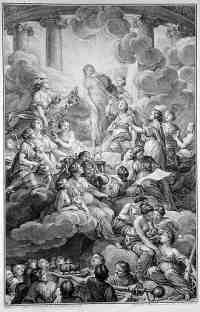
An engraving from the 1772 edition of the Encyclopedie;
Truth, in the top center, is surrounded by light
and unveiled by the figures to the right, Philosophy and Reason."
Enlightenment?
Reason? Now my work researching the deeper psychology and physics of our
place in the life of our planet suggests this era may have heralded an
age of unprecedented barbarism: the Anthropocene founded in waste and
global despoliation. Such can be the superb trickery of the ego. Smile.
We
are our symbols and our use of language simultaneously reflects and
generates our state of being. The meaning of the “enlightenment”
symbol was perverted in the 18th Century so the word became
more associated with the freedom to enslave, extract and exploit. The
“reason” symbol became less associated with sanity and more
associated with the supremacy of logic and thought, thus enabling the
ego to generate new dimensions of self-deceit.
As
I track the etymology of the language of our modern Green Movement back
to the reactions of the Romantic Poets to the early excesses of the
Industrial Revolution and then back to Descartes I am increasingly
reminded how the ego can so easily make us each our own worst enemy. I
am repeatedly confronted with the question: could it be the
“Environmental Movement”, which I hold so dear, is fundamentally
unsustainable?
A
Ngai Tahu panellist quotes an ancient kaumatua, “The Scottish and the
Irish are Maori but the English are hard people.” The McArthur clan in
me nods in agreement. Ah yes, those brutal English. Unlike Maori, we did
not commit our whakapapa to spoken memory. Rumour is that when the
rapacious English dispossessed us in the 17th Century they
burned the Scottish Church registries to obliterate our Celtic culture.
I can never prove my direct links to the legendary King Arthur now...
In
the rosy glow of this shared experience it is easy to forget my English
whakapapa. My mother, a “war bride”, was born and bred close to the
City of London – nerve centre of perhaps the most brutal global empire
in human history. It was she who taught me so much about the value of
frugality, stewardship, truth and compassion in general. My righteous
glow becomes tinged with humility.
English,
Scottish, Irish, Maori. I am vitally informed by all these cultures in
this place in the Great South Pacific Ocean where my family has lived
for seven generations now. Maybe this conference will ask the deeper
questions? Why have we adopted a use of the “science” symbol that
strips it of any associations with compassion? Why do we embrace a use
of the “arts” symbol that obscures the learning process? Why do we
employ the “environment” symbol so it disconnects us from all?
Perhaps, just perhaps, people are ready to explore for principles that
explain this unsustainable behaviour?
Lunch:
The sun. A tree. Food. A fellow human being. A confluence of these vital
needs leads me to meet David McKay. Other delegates sit in circles in
the sun. David sits alone, resting against the trunk of the lone tree on
the lawn. I join him in the sweet shade of the tree. Soon our
conversation is so stimulating I am forgetting to eat. We come from very
different approaches.
His work on sustainability is informed by his explorations of the wisdom
of Maori culture.
My work on sustainability is informed by my explorations of the ancient
Indo-European wisdom of the English language and how we might transcend
the trickery of the ego using the insights of the great principles of
physics.
We are both concluding the Eurocentric model of education is fatally
flawed and Environmental Education is, at best, unhelpful. We both
propose radical solutions.
That scene on day one – the sun, the lone tree, food, the man alone
– seems to portend something. I am not surprised that David’
presentation on the Friday morning is for me the most important one of
the conference.
I
choose the community garden tour for my Experiential Journey. It is not
just because I have been involved in establishing one adjacent to
Houghton Valley School. My experience is that community gardens can
offer powerful insights into the socio-politics of a place. They can
also be sources of hope. Our guide is such a source. Bailey Peryman is
young, tall, gangly and weathered. He is wearing worn, leather boots
that are broken open at the toes so they constantly seem pursed to take
part in our conversations. I find myself addressing my questions to them
too.
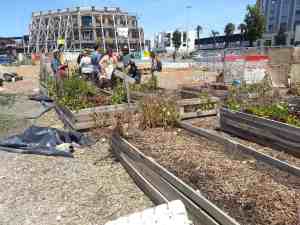
Our group exploring Agropolis
Whether
we are gazing at a bed of vegetables or standing in one of the many
gravel deserts of the CBD or sitting on the Avon River Bank, Bailey
exudes dreams and questions of how we can engage people to repair these
soils and waters so each place can again become a food source. There is
never dispute in our group that each place can become sustaining again.
Always the discussion soon moves to the invisible labyrinth of
greed-driven institutions that control each place, to the people who use
their power to capitalise on ignorance and catastrophe, to the deeper,
often sad history of each place. I find hope in Bailey’s humour and
the way he embraces impermanence. I am sustained by his quiet
persistence in finding the potential for good amidst the destructive
mania of the Christchurch oligarchy.
Our
four-hour tour passes quickly. We have only walked a few blocks and yet
I feel we have journeyed through many mountains and valley of this
place. Such is the physical nature of culture in our minds. Suddenly I
am seated in the cool cocoon of an air conditioned lecture room at Ilam.
Dr Rod Carr, Vice Chancellor, is welcoming us to Canterbury University,
my alma mater. The chilled air nips my sunburned skin. The contrast
somehow keeps me mindful me of the reality I have experienced all
afternoon in greater Christchurch and how different it is to the reality
of this university room. Listening to the Vice Chancellor I marvel at
the capacity of human beings to see the same thing so differently.
Dr Carr also speaks of change and opportunity. He speaks of how young
people are flocking to Canterbury University because the old order of
the city has been swept away and the city is now a blank slate. Young
people no longer have to adapt to the status quo or leave. He speaks of
how they now can be part of exciting opportunities created by the earthquake.
???!
I
know well that old order through working for the Christchurch City
Council and visiting tens of thousands of homes across the city for
decades. I have been bitten by the corgis as I crunched my way up the
neat gravel paths bordered by box hedges to the Fendalton mansions where
the entrance foyers are bigger than the Sydenham slum cottages I just
visited. Feudal Britain transplanted in the antipodes.
I have watched with great sadness as that old oligarchy has used the
trauma of the earthquakes and other events to strip away the civic
structures I knew. My long-time friends here confirm the old order is
now even more deeply entrenched. I hear the phrase "Disaster
Capitalism" more than once.
How
can such an erudite man be so oblivious to the truth of this place? I
know the answer but still I wonder. I know the ego can easily deceive
the most literate, numerate and articulate person but I still marvel at
its ingenious trickery. Rod confirms my suspicions that my alma mater
remains fundamentally feudal and is incapable of communicating the value
of civics. It occurs to me that the corporate nature of these
sophisticated, insular institutions is a triumph of the ego’s capacity
for trickery – the notion that they are “universities” is a most
hilarious deceit. They cannot sustain new generations of students.
Thursday
and Friday morning are filled with key note speeches and seminars. It so
happens that my choice of seminars means I do not need to stir from the
main lecture room for any of the continuous presentations. They merge
into a blur of talk, ideas and powerpoints. What follows are snippets
that impinge on me so I think to jot them down. These vaguely literate
notes fail to reflect the thoughtfulness and insights of the
presentations. Anyway we are promised these will be available online
soon.
Also what follows are my responses to these snippets, as I reflect on
the sustainability of the conference.
I
can say now that even as the presentations accumulate and merge into
each other a significant change becomes clear amidst the blur. I become
aware that a considerable transformation of the Environmental Education
culture has occurred somehow. My sense of excitement for our children grows as I listen to
speaker after speaker, whether from New Zealand or overseas, conveying
the same message. This message is summed up in one word. Place.
Now
I feel I have to pause here and explain the enormity of this change
before I note my responses to the snippets.
My
background is different to most Environmental Educators in that in
1998-99 I came back to formal education after three decades of direct
involvement in communities. The Environmental Education Guidelines
document was
launched that year while I was at the Wellington College of Education. I
can be described as a long-term greenie and part of me embraced the
Guidelines document, for I appreciated its fine intentions and welcomed
its focus on our care of the ecology that sustains us. I too railed
against our policy makers for not making Environmental Education
mandatory.
At
the same time the Guidelines document failed to resonate with some
deeper element of my psyche. It was formed nonsense I could not identify
or articulate. I sensed something about it is deeply unsustainable. This
became more apparent to me in 2000 when I was given the task of revising the
world-leading Energy Action
programme, which community institutions had funded into about 1400 of our
primary schools.
I
had intimate and extensive experience of the nasty surge of greed,
brutality, secretiveness and deceit that occurred throughout the 1990s
with the corporatisation and privatisation of the community-owned MEDs
and Power Boards. What had been “service-driven” became
“profit-driven”, enabling criminals and speculators to flourish.
Also in 1993 the practice of energy efficiency was effectively made
illegal and it was heartbreaking to witness the consequent destruction
of so much of our most sustaining national potential.
2000
and it would be such relief and so healing to work with service-driven
people again. Surely those who work in the Environmental Education
industry would be people who are inclusive and love sharing ideas; who
thrive on learning and exploring the truth; who value stewardship and
strive to be sustainable...
I
was not prepared for the deceits, corruption, exclusivity and conniving
I encountered as I sought support for the revised Energy
Action programme. I soon learned that the unofficial policy of the
NZAEE is “There is room for only one national environmental education
resource and that is Enviroschools!!”
Shades of the past. This was the 1984 Labour Administration at its worst
with its mantra TINA – There Is No Alternative. This was the Roman
Catholic Church of my youth with its incantation that the Pope is the
exclusive means of salvation.
It
had taken several months of hard work for me to realise how and why Energy
Action contained fatal flaws that work to deny the great principles
of physics and destroy civics. No one, not even the top educators in our
Government Departments, our universities and our Royal Society had seen
them.
The errors became obvious to me because I had a unique experience of the
vital role of language in our lives. As a meter reader, I had found each
generation knew me differently – as the Electric Light man (1920s),
the MED man (1940s), the Power man (1960s) and the Energy man (1990s). I
had witnessed the process by which greed-driven bankers and their agents
in “the energy sector” had re-engineered our prime symbols,
reshaping our notions of energy, power, electricity and fossil fuels to
serve their own short-term interests. I now suggest the excesses of the
Industrial Revolution can be summed up in our adoption of the following
fatally flawed equation:
Energy = fossil fuels = power =
electricity = Bulk-generated electrical products.
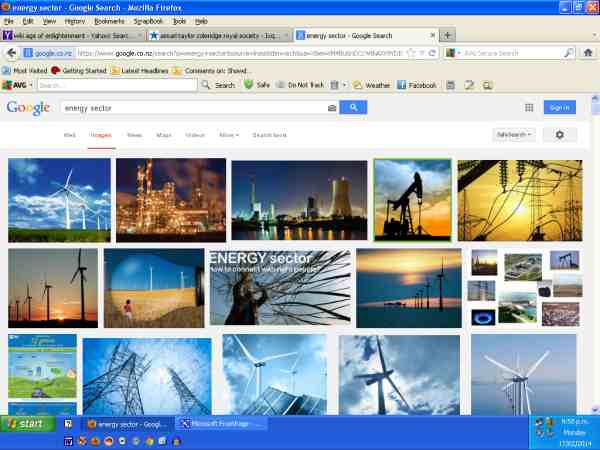
Page one from a search on "energy sector" 17 Feb 2014.
Every element of this belief system is flawed and when combined in
this equation they form a potent recipe for hopelessness and misery.
The
revised Energy Action challenged this belief system to the core by founding
all notions of energy in the Conservation Principle of Energy. This
great principle of physics, which has never been disproven despite the
most intense scrutiny, teaches us that energy is bounteous, ever
changing and comes in myriad, finite forms. It is perhaps the most
sustainable symbol that humans have ever generated.
The revision also expanded Energy Action’s world-leading focus on climate care, which had NZ
primary school children in the 1990s calculating the carbon emissions of
their school’s activities.
It
so happens I became peripherally involved in 2000 in early drafts of Enviroschools.
It took only a few questions to be able to predict it would be the
perfect vehicle for propagating the above fatally flawed energy equation
into our schools. My concerns were dismissed.
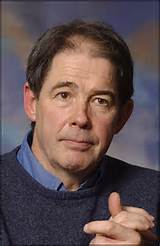
It took Sir Jonathon
Porritt, keynote speaker at the 2006 NZAEE conference, to point out the
obvious – Enviroschools
omitted any real reference to our extremely dangerous abuse of our
carbon potential. It provided little or no useful guidance to quality
air care. I shall never forget how he paced up and down, sweating,
searching for words as he related his distress from reading The
Revenge of Gaia by James Lovelock on his flight to New Zealand
and then discovered in a two hour introduction to Enviroschools
there was not one single mention of the overwheming issue of our
times - our use of carbon. I spontaneously began applauding with relief
that I was no longer alone in this observations and then became aware of
a very strange sound. It was the lonely echoes coming back to me of a
single person clapping in a crowded hall. Smile.
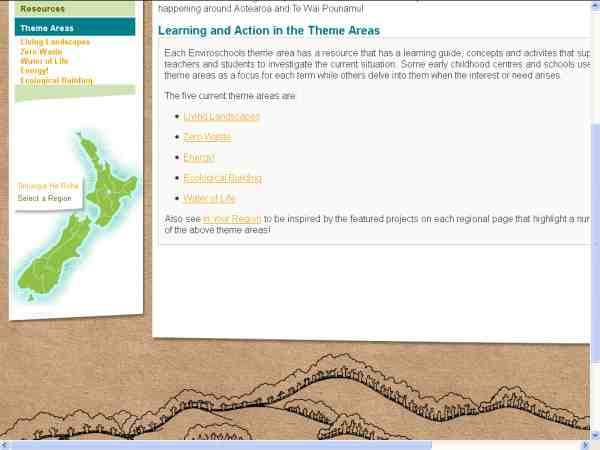
Theme areas: Living Landscapes. Zero Waste (A great denial of change-
all our actions involve waste). Energy! (A denial of change - energy
enables all things, including living cells, buildings and water). Ecological Building.(??) Water of Life. (And where is
air, without which we die in minutes, and where is language, without
which humankind cannot exist).
It
is fair to say I was denigrated and ostracised till well after 2006 for
attempting to alert people to the possibility that the Environmental
Education industry, including Enviroschools,
works to destroy the state of science in our communities and thus
civics. I mention this in kindness for I continue to have much cause to
be grateful to the obstacles I encountered. Very early on I learned
every act of dismissal, deprivation and isolation turns out to have been
a stimulus that takes my work to previously unimaginable worlds.
These
worlds include the ancient Greek-Indo origins of much of our spoken
language, the mindboggling conjunction of physics and psychology and
that hilarious place within each of us where conscious and unconscious
self awareness interact – the domain of the ego.
Initially
I explained the unscientific work and uncivil behaviour of very
well-meaning Environmental Educators as that of good people caught up in
and compromised by the desperate scramble for funds to enable their
projects to exist. However I came to realise a more subtle psychology is
at work.
Each
of us is our own symbol – our lifestyle is our ultimate message. Our
individual state of being is simultaneously reflected and generated by
our use of language. Similarly our education system simultaneously
reflects and generates New Zealand’s general culture. Currently we
have an extremely unsustainable culture and this is reflected in all our
language systems, including our schools. The basic driver of this unhelpful behaviour and
associated language cycle is the ego’s tendency to deny change/stewardship i.e.
to deny the finite nature of all forms, including the human form i.e.
our mortality.


This denial is manifest in our personal actions and in
the learning activities of our schools. It works to disconnect us from
our place, within and without.
The
Environmental Education industry is particularly vulnerable to the
deceits of the ego. This is because its members have an enhanced
sensitivity to the negative impacts of their activities on the balances
and flows that sustain us. Life involves paradox. In this case the
paradox is that this enhanced sensitivity results in the ego generating
even more sophisticated and deceitful systems of denial of stewardship.
Our means too easily become our ends.
It
has not been easy observing the consequences of the inability of these
passionate, well-meaning people to transcend this paradox of the ego. Enviroschools
is now a potent force in our communities. The Environmental Movement
has played a pivotal role in ensuring pollution taxes were rejected and
New Zealand adopted the Enronian Carbon Trading regime in 2008. It has
also played a pivotal role in the disenfranchisement of all New
Zealanders and the associated destruction of our electrical and solar
potential this last three decades. At least twice this last two years we
have experienced the phenomenon of our teachers’ unions often
headlining the national news with their proclamations of how great our
democracy is on the very same days our Government was stripping away yet
another right and privatising another vital national asset. Smile.
Why
smile? All this unhelpful behaviour is enabled by a very subtle
psychology, best understood with compassions and a sense of humour.
Certainly it gives much reason to weep. However there is a funny side to
the way our grand denials of change/stewardship are manifest in
Environmental Education programmes that fundamentally work to promote
unsustainable language, undermine our state of science and obscure the
vital role of civics in our lives. There is a funny side to the paradox
that even as our ego limits us, there are no limits to its trickery. The
ego is so incredibly ingenious at self-deceit and it is hilarious to
observe the ends it will go to in its efforts to trick us into be our
own worst enemy.
Fortunately
it is probable we can transcend the grand deceits of the ego and the
limitations of paradox by seeing the humour in our situation and by
embracing the great principles of physics. Thus though I am dismayed as
I observe the large scale destruction of our children’s potential, I
am sustained in hope by sensations of compassion and the insights of what I tentatively call
The
Sustainability Principle of Energy.
A symbol used in acceptance of change enhances the capacity of the user
to mirror reality and enjoy harmony. A symbol used in denial of change
destroys the capacity of the user to mirror reality and know harmony.
I know our children are born into a considerable state of science and
thus civics.
These
are the unique experiences and radical perspectives, beliefs and
insights I come to this conference with. Will the conference identify
the ways our systems destroy this precious state of being we are all
born into? Will delegates embrace strategies that sustain the compassion
inherent in every child?
Mike
Brown: Place-responsive outdoor learning
“Good
education is needed... Current approaches promote
individualism..disempower learners and teachers...impoverishes
opportunities for learning...outdoors is a blank space on which we
ascribe social and other values...Places teach us about how the world
works and how our lives fit into the spaces we occupy... the primary
task of all education is to cultivate a sense of place”
Response: Hey, good start. Yes. Individualism is all about disconnection
– the deceits and denials of ego run rampant. Hmmm. I wonder if
cultivating a sense of place is actually a secondary task of education? Perhaps the primary task of all education is to ensure it does
not destroy the state of compassion we are born into? This said,
developing a sense of place is vital in that it promotes all manner of
connections.
“The
transience of our population is a problem...”
Response: So true. So damn true. It gives rise to speculation,
exploitation, corruption, alienation and despoliation. Indigenous wisdom
and associated civics are destroyed. The most psychopathic and psychotic
corporations thrive in the extreme transience of populations. They can
rewrite history, including language, to serve their own short-term
interests. Transience makes people malleable for amoral purpose.
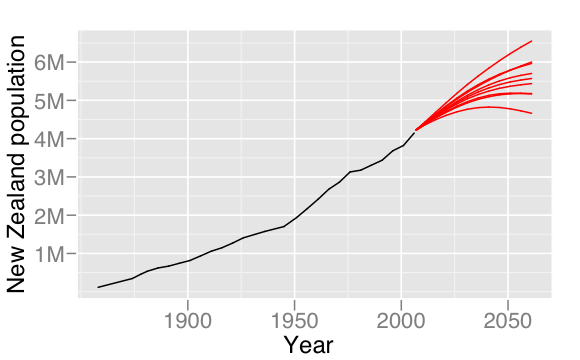
Between
1999 and 2008 New Zealand’s population exploded from 3.8 million to
4.4 million people – the years of the Labour Green Administration. Add
this flood of immigrants to the exodus of those people born here. Then
calculate the number of New Zealander’s born after 1975 who have no
adult experience of the civics that prevailed before 1990. The majority
of New Zealanders now have no practical knowledge of how the
institutions, grids and connections that form our place came to be. Is
it any wonder so many people accept the privatisation and destruction of
our most vital assets, including our intelligence? Any Labour Green
petition against asset sales occurs in an alien culture and civic vacuum
of the parties own making.
Bronwyn
Hayward – Sustainable social handprints: Nurturing resilience,
resistance and democratic imagination in times of upheaval.
“...
Should we discuss politics with children? ...Yes – children are
citizens! ...The Ministry of Education has failed in its duty for care
of the children of Christchurch.”
Response: Yes. Children are citizens. They have an unparalleled capacity
to learn every language known to humankind. They enjoy a rigorous,
honest sense of inquiry that few adults know. Their sense of justice is
keen. Indeed they are probably our greatest teachers of civics. Hmmm.
The
Ministry of Education “fails in its duty of care”. “Fail” is
probably too mild. The Ministry is a major agent of the excesses of the
Industrial Revolution and actively destroys the state of science all our
children are born into.
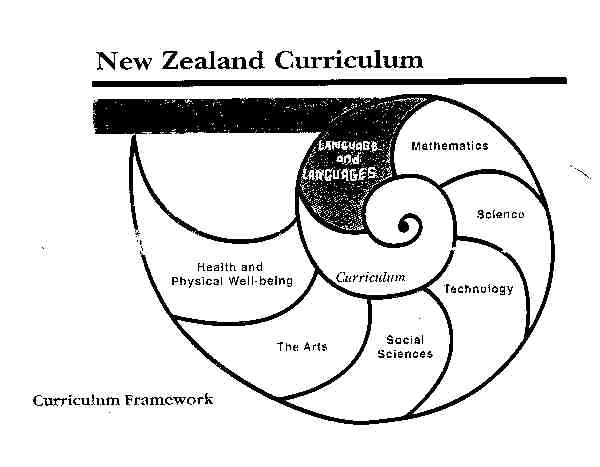 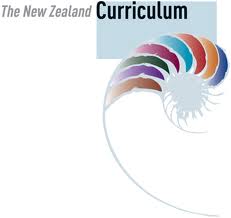

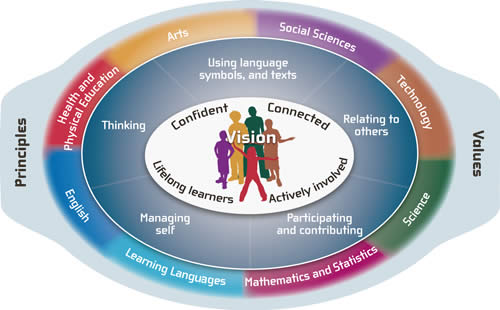
All the modern graphics do not alter
the fundamental message of the NZ NEC Framework, as illustrated in the
isolating compartments of a nautilus shell.
Language, text and behaviour are symbols.
The
Ministry's NZ National Education Curriculum Framework is hostile to true learning
about the sustainable learning process because the Framework destroys
our capacity to comprehend that science is the state of being that
enables us to develop all manner of skills (arts), including language
and civics.
See how it teaches that science is just part of the learning process
rather science is the essential learning process.
It teaches that science is just an amoral way of thinking
rather than a profoundly moral way of being. It deems that less than 1%
of us are “scientists” or “artists” and thus disempowers our
children on scale.
Bronwyn
“Resilience”
“Empathy” “Growing inequality”
“Weakening democracy” “Climate
research” “..from ecological footprints ... to social handprints”
Response: Ah, this is in many ways fine music to my ears. This
conference is getting very interesting indeed.
Perhaps soon people will be making the big connect that sustainable
lifestyles are enabled by civics, which is born of the state of science,
which in turn is born of the state of compassion?
Perhaps people are working towards the realisation that we are our
climate and our breath is our greatest teacher, if only we give the time
to learning from it?
Bronwyn
“Economy” “energy consumption” “neoliberal”
“environment”
Response: Alarm bells here. The meaning of all these symbols has been
diminished and even destroyed since the advent of the Industrial
Revolution.
- What we call an economy
now is a system founded in planned
obsolescence and waste with frugality deemed unhealthy. It is more
helpful to speak of New Zealand being a “diseconomy”.
- The notion we can “consume energy” denies the great principles of
physics, which teach us that energy is
conserved. Human can only consume
forms of energy. There is a universe of difference between humans
destroying energy and humans destroying the forms, flows and balances
that sustain us.
- The “Neoliberal” symbol is commonly used interchangeably with the
“Neocon” symbol, whereby we destroy the meaning of the
“conserve” symbol by associating it with some of the most wasteful
human beings on the planet. This use of the “Neocon” symbol denies
the reality that the true conservatives among humankind are those who
more truly conserve the flows and balances that sustain humanity. It
involves grand deceit in that the “liberal” symbol is associated
with freedom from responsibility for our actions. Our trades are
unfettered from our sense of morality in the Neoliberal ethos.
- Contemporary notions of environment work to disconnect us from the
universal potential, which is continuous transformation. Too often now
we speak of “humans and the environment” rather than “humans are
the environment”. We have Parliamentary Commissioners and Ministries
“for the environment” while civics languishes. Too often since the
1950s we associate environment with ecology and obscure the role of our
psyche in our place.
Bronwyn
“Frustrated
agency Environment
exclusive Authoritive decision making Retributive
justice Silenced
imagination i.e. FEARS –
the authoritarian handprint of fears.
“Self-help
agency Market
Participation A
priori, universal justice Representative
decision-making Technological
transformation i.e SMART
–the environmental handprint of Smart Environmentalism
Social
agency Environmental
education Embedded
justice Decentred
deliberation Self
transcendence. i.e. SEEDS
–the social handprint and seeds of ecological citizenship
..not
just focussed on physical environment... sense of place.. sense of
justice lived every day - the hard part.. how do we rate social
democracy and shared connections?”
Response:
Wow. There is a lot summed up in these acronyms.
At a personal level each of us experiences the ego with its tendency to
deny change/stewardship (our mortality). The ego is ingenious at
generating FEARS.
At a societal level the FEARS of the ego are reflected in the structure
of the modern private corporation, which has all the rights of an
individual but none of the responsibilities. As such modern private
corporations are the pure manifestation of the capacity for psychopathy
and psychosis that resides in each of us.
SMART Hmmm. Careful here.
There exists a very big difference between smart and intelligence
systems. Smart people, systems and technology can too easily be very
clever, exclusive, amoral, authoritarian, centrist, devious and plain
dangerous. Our education system produces many smart people who lead
extremely unsustainable lives. How superbly smart are the complex
algorithms of the top Harvard and Stanford graduates that drive the
deluded derivatives trading system?
An intelligent system, by comparison, is founded in humility, democracy
and inclusiveness, enabling all those involved in the system to share
equally in the conversation.
I
do like SEEDS – especially notions of self transcendence. This is exciting
stuff. Perhaps soon people will understand how the Sustainability
Principle of Energy enables us to embrace the great principles of energy
so our use of symbols enables us to transcend the limitations of thought
and the trickery and self-deceits of the ego?
Mind you, the Sustainability Principle of Energy does remind us that
without care all language contains within it the seeds of our
destruction. Just what is “Environmental Education”? “Social
handprint”? “Ecological citizenship”?
Perhaps these separate questions obscure a common answer?
What if we understand that science is a profound moral way of
being born of compassion that enables us to develop sustaining skills?
Then we discover the sustaining studies of physics, psychology,
sociology and ecology form a great confluence, merging to form the
central study of the art of civics. And what is the art of civics? It is
the development of the knowledge of one’s place amidst the universal
flux so we each are better able to lead lives that sustain the flows and
balances enabling humanity to exist.
And
how do we measure our lives so we enjoy “a sense of justice lived
every day”? A few measures spring to mind:
By embracing the tools provided by the principles of physics and knowing
all forms are finite.
By knowing the place of our culture within the broad frame of humanity
and being students of the civics of our language.
By knowing the place of democracy, which involves understanding that our
votes at the petrol pump, the airline counter, the electrical meter
board and the supermarket checkout determine nearly all that we can vote
for at the ballot box.
By enjoying compassion.
Brad
Harasymchuk - Place based Education: Challenging the neo-colonizing
processes of the New Zealand and Canadian schooling systems.
“British
Industrial schooling models...teachers are becoming aware that the
values...(of)... the current systems ... are founded in European
American culture.”
Response: Please don’t leave it there, Brad. Elaborate. I have been
deceived all my life by our teachers and I want to know the truth. I am
a product of the British Empire. I am only now discovering how totally
the City of London–Wall St axis controls all our media, including our
education system. Please elaborate how the visions of unfettered
expansionism that resides at the heart of the British Empire is manifest
in our exponential population growth, our despoliation of the planet’s
ecology and our destruction of precious minerals. Just how does our
British colonial culture inculcate so thoroughly the imperial values of
planned obsolescence and waste in our children?
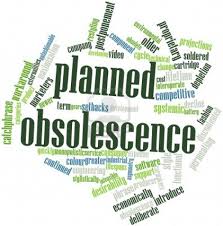
http://alft-teluu.blogspot.co.nz/2013/09/planned-obsolescence.html
Surely no other
education system has ever produced such a global diseconomy in known
history?
Brad
“PBE
= Place Based Education...the critical pedagogy of place..aims..
education ..oppressive power relations and put them into local contexts
and situations...curriculum: thematically integrated, student centred,
project based, experiential, inquiry-based learning, peer
assessment/evaluation..”
Response:
Oh well, at least it wonderful that the importance of place is being
recognised to the extent it is even being given an acronym –the
“PBE” symbol. However I see little evidence that our teachers and
pedagogues are experiencing greater awareness of how our New Zealand
education curriculum is primarily designed to demoralise and disempower
our children so they can be better commodified and, if necessary,
converted to cannon fodder to serve the short-term interests of our City
of London-Wall St oligarchy.
We
seem to have learned little from the global wars of last century. Most
of our teachers speak the language of this oligarchy – a language
characterised by denial of change/stewardship, by rejection of the great
proven principles of physics. Most drive cars and fly in jets as though
it is their God-given right to destroy in most wasteful way the unique,
amazing wealth potential of mineral oil/gas. Come to think of it –
where are the primary and secondary teachers at this conference? Rumours
are that there are only three or four teachers here out of the 150 or so
delegates...come to think of it, I wonder if there are any delegates
from the upper echelons of the Ministry of Education?
Brad
“Concluding
...there is a shift from Outdoors Education to PBL..the beginnings of
the critical education of place.. decolonisation involves resistance...
What I don’t know...the question I am interested to know the answer to
is: does rehabilitation lead to a re-colonisation?”
Response:
I approach Brad after his presentation. He affirms that he really wants
to know the answer to this question. I tell him the answer is almost
certainly yes and I can prove it.
We were a British Colony for a century till WW11 when a more overt
American colonisation occurred. Since the mid 1980s our state can be
characterised as being a colony of the City of London-Wall Street Banker
oligarchy. This is manifest in the firesale of our critical national
assets in order to fund a vast new array of hidden subsidies to car,
truck and jet users –all of which this oligarchy makes massive profit
from.
I
provide Brad with proof of this re-colonisation process in the form of a
printed index of the language used to subtly disempower New Zealanders and
imprison us in ignorance and debt of all kind. I tell him the list is drawn
entirely from the literature of the Green Movement, of which I am part,
and it indicates we probably spearhead the re-colonisation of our
communities. Brad does not seem very surprised at this suggestion.
Glynne
Mackey & Jeanne Williams. Sharpen up, shake up and stand up! Young
children as agents of change.
Glynne
“ Enviroschools works perfectly –empowering students by providing
civics, learning for sustainability, Maori perspectives, respect for the
diversity of people and sustainable communities...it is based around
science and nature...”
Response: Enviroschools works perfectly? Well perhaps it does but not in
the way its authors think it does? I am reminded of Al Gore in An Inconvenient Truth saying that for fifteen years he has been
articulating his message of the science of climate change and still
cannot get it across to people. The human ego is ingenious at subverting
our best intentions by creating powerful, hidden curriculum. The
inconvenient truth is Al gets his message across perfectly but it is not
the one he thinks it is. Indeed the film is perhaps the most perfect
advertisement ever made extolling car and jet use and the Carbon Trading
ethos. As predicted, in the period after the film’s release here NZ
car imports reached record highs, NZer’s overseas jet travel increased 16%(?) and pollution taxes were
rejected in favour of Carbon Trading – all against a background of
rapidly rising mineral oil prices.
Similarly
Enviroschools communicates its message perfect well. The
“enviroschools” symbol teaches that the school is the universe,
which is very different to seeing the universe in a school. The
prevailing association of the “environment” symbol with ecology is
further limiting in that it works to exclude the role of our psyche
amidst the universal potential. Enviroschools
forms an elegant exemplar of one of the greatest tricks of the ego,
which is its ability to blind us to negative spaces. The ego easily
makes us oblivious to silences. The most dominant messages do not reside
in what the Enviroschools
framework speaks of but rather in what it does not speak of. It is
silent about the prime role of language, the sacred gift of mineral oil
and the Warmer Trace Gases of the atmosphere that enable life to exist
on Earth.
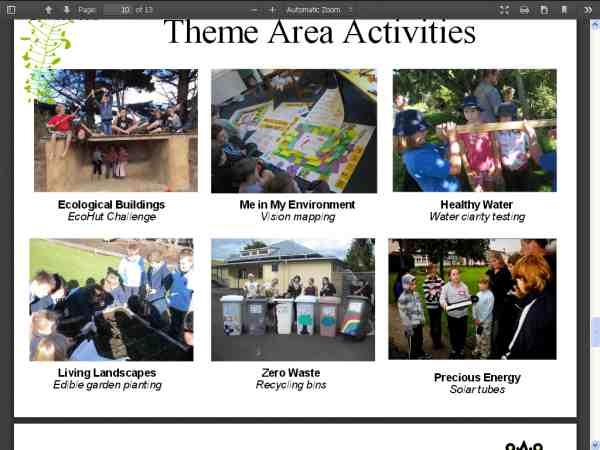
http://nzaee.org.nz/wp-content/uploads/sites/2/2013/09/Jenny-Neilson.pdf
Thus
well-meaning Enviroschools teachers have signs on their doors exhorting our
children to “Conserve energy” and “Save Power”, thereby denying
the great sustaining principles of physics and propagating Banker Speak.
Two years ago I asked a few teachers what was missing in their
school’s Environmental Education programme. Eventually I resorted to
hints by giving great sighs of mock exasperation at their inability to
see the vacuum. Only then did they bang their foreheads with their hands
in exasperation that they were so oblivious to the air they
need constantly breathe.
While Enviroschools focuses on
healthy water and solar tubes, it does not promote the teaching of the
civics of the ownership of our local water, electrical grids and other
community systems. Indeed here in Wellington 95% of adults can no longer
tell you who owns our local 230 volt grid (a Hong Kong property
speculator – Ka-Shing Li) and on the day the Government announced the
privitisation of Meridian Energy the leaders of our primary and
secondary teachers’ unions swamped the headline news with
proclamations of what a great democracy New Zealand is.
The
inherent message of the Enviroschools
symbol can be very clear. I recall when the principal of an Enviroschool
referred a BOT member to me a few years ago.
The member worked at NIWA and was keen to make the school an exemplar -
New Zealand’s first “carbon neutral school”. He became visibly
upset when I suggested the notion of “carbon neutrality” is nonsense
or non-science. Surely we
are Carbon Beings in that we are part of the universal carbon flux?
Surely our actions are always moral and can never be neutral in
the context of the great flows and balances of carbon? Do we wish to
deny our children this reality?
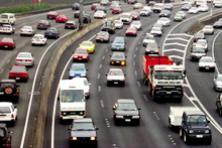
Photo on NIWA
page explaining "carbon neutrality".
Surely each driver is
transforming some of the dwindling reserves of
carbon in the form of
mineral oil into carbon in the form of atmospheric gases?
How can this
destruction of mineral oil ever be a neutral act?
After a bit of a stalemate he suggested we could at least get the
students auditing their “energy use” and carbon emissions. He was,
of course, equating energy with a couple of electrical and mineral gas
products. I waved to perhaps the most potent learning activity of the
school – the rows of cars and SUVs lined up in the streets and in the
school’s main entrance, some of which had been driven some kilometers
past several schools in the transport of children.
His
face creased in frustration, for he probably could do the sums better
than I.
Private cars are their infrastructure.
Each private car requires tens of thousands of dollars in public subsidy
each year.
Each car destroys at least two or three barrels of mineral oil a year
transporting children to the school... that is 4-5000 kWh – about the
energy equivalent of a person labouring 8000 hours or eight hours a day
for 1000 days or four years.
Well over 95% of the fuel destroyed is transformed into waste heat and
as little as 1% is used to actually move a child.
The inefficiency and waste of the school’s car fleet dwarfs that of
the classrooms.
We both know such an audit would profoundly question the school’s
viability and the teachers’ lifestyles.
“Perhaps
we just do audits within the school gate? After all this is an Enviroschool”,
he suggested. I recall being a bit lost for words and looking above the
trees and through the utility wires to the sky for guidance. I think I
mumbled something about the school having to decide how much it wants to
teach the truth. Thankfully the school did not become an exemplar of
“carbon neutrality”, I don’t recall us ever speaking again and
often wonder how an Enviroschool
facilitator would have responded.
Glynne: “It is now four decades since Environmental Education began in New
Zealand...it has come a long way... a cause for celebration...”
Response: Ah yes, smile, we human beings are funny old creatures. How
easily we forsake the state science and become our own worst enemies.
First we stripped the “science” symbol of its associations with
compassion and moral being and enabled the excesses of the Industrial
Revolution. Then the Romantic Poets reacted to these excesses by
redefining the “arts” symbol as the antithesis of science rather
than the vital sustaining product of the state of science. This
confounded and denied the essential learning process by which we develop
all manner of skills (arts) including language and civics. Smile. To
think these poets were some of the finest wordsmiths of the English
language and some of the most sentient of Britain’s landscapes and skies.
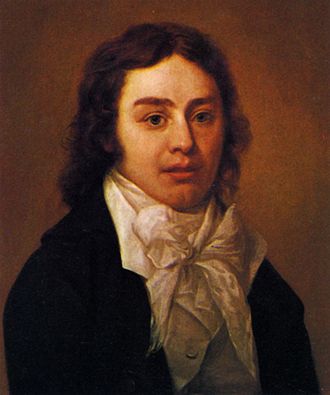
Samuel Taylor Coleridge
The term science is a relatively new
usage derived from its parent natural philosophy. The call for a new
terminology was given on June 24, 1833, at the third meeting of the
British Association for the Advancement of Science. There, the famed
poet Samuel Taylor Coleridge declared that the body should abandon the
older label of "natural philosopher" as unbefitting men
engaged in the practical pursuit of unlocking nature's secrets for the
benefit of all. It was Whewell who suggested that if
"philosophers" seemed too lofty a term then "by analogy
with artist, we may form scientist" (p. 3.). The change was not
immediately accepted, but Whewell set in motion a sea change that
would become permanent and secure itself within our modern lexicon.
More than a mere replacement of words, the change signified deeper and
more fundamental transformations, - See more at: http://www.evolutionnews.org/2012/04/at_the_birth_of058241.html#sthash.dwM4FdDq.dpuf
The term science is a relatively new
usage derived from its parent natural philosophy. The call for a new
terminology was given on June 24, 1833, at the third meeting of the
British Association for the Advancement of Science. There, the famed
poet Samuel Taylor Coleridge declared that the body should abandon the
older label of "natural philosopher" as unbefitting men
engaged in the practical pursuit of unlocking nature's secrets for the
benefit of all. It was Whewell who suggested that if
"philosophers" seemed too lofty a term then "by analogy
with artist, we may form scientist" (p. 3.). The change was not
immediately accepted, but Whewell set in motion a sea change that
would become permanent and secure itself within our modern lexicon.
More than a mere replacement of words, the change signified deeper and
more fundamental transformations, - See more at: http://www.evolutionnews.org/2012/04/at_the_birth_of058241.html#sthash.dwM4FdDq.dpuf
The term science is a relatively new
usage derived from its parent natural philosophy. The call for a new
terminology was given on June 24, 1833, at the third meeting of the
British Association for the Advancement of Science. There, the famed
poet Samuel Taylor Coleridge declared that the body should abandon the
older label of "natural philosopher" as unbefitting men
engaged in the practical pursuit of unlocking nature's secrets for the
benefit of all. It was Whewell who suggested that if
"philosophers" seemed too lofty a term then "by analogy
with artist, we may form scientist" (p. 3.). The change was not
immediately accepted, but Whewell set in motion a sea change that
would become permanent and secure itself within our modern lexicon.
More than a mere replacement of words, the change signified deeper and
more fundamental transformations, - See more at: http://www.evolutionnews.org/2012/04/at_the_birth_of058241.html#sthash.dwM4FdDq.dpuf
The term science is a relatively new
usage derived from its parent natural philosophy. The call for a new
terminology was given on June 24, 1833, at the third meeting of the
British Association for the Advancement of Science. There, the famed
poet Samuel Taylor Coleridge declared that the body should abandon the
older label of "natural philosopher" as unbefitting men
engaged in the practical pursuit of unlocking nature's secrets for the
benefit of all. It was Whewell who suggested that if
"philosophers" seemed too lofty a term then "by analogy
with artist, we may form scientist" (p. 3.). The change was not
immediately accepted, but Whewell set in motion a sea change that
would become permanent and secure itself within our modern lexicon.
More than a mere replacement of words, the change signified deeper and
more fundamental transformations, a complex story that Snyder tells
with engaging clarity. - See more at: http://www.evolutionnews.org/2012/04/at_the_birth_of058241.html#sthash.dwM4FdDq.dpuf
To
quote
from Evolution News
"The
term science is a relatively new usage derived from its parent natural
philosophy. The call for a new terminology was given on June 24, 1833,
at the third meeting of the British Association for the Advancement of
Science. There, the famed poet Samuel Taylor Coleridge declared that the
body should abandon the older label of "natural philosopher"
as unbefitting men engaged in the practical pursuit of unlocking
nature's secrets for the benefit of all. It was Whewell who suggested
that if "philosophers" seemed too lofty a term then "by
analogy with artist, we may form scientist" (p. 3.). The change was
not immediately accepted, but Whewell set in motion a sea change that
would become permanent and secure itself within our modern lexicon. More
than a mere replacement of words, the change signified deeper and more
fundamental transformations, a complex story that Snyder tells with
engaging clarity..."
The excesses
of the Industrial Revolution were amplified in the 20th Century by our
newfound ways of extracting mineral oil and addictive use of it. In the
1950s the Banker oligarchy responded to the consequent global wars by
redefining energy itself as a commodity – namely fossil fuels and
Bulk-generated electrical products. They re-engineered the “economy”
symbol so it becomes associated with systems of exchange founded in
“planned obsolescence” – diseconomy becomes symbolised as economy.
The spiritual descendents of the Romantic Poets in the 1956 then reacted to the
consequent enhanced despoliation of minerals and resources by redefining
the “environment” symbol as ecology, thus further disconnecting us
from reality. The “Green Movement” was born, as was the “Energy
Conscious Age”.
The
ego is so ingenious. Reaction tends to perpetuate and enhance that what
is being reacted against. Smile. Today Glynne is asking us to celebrate
one of the most potent, dangerous, ongoing tricks of the ego this last
three centuries as it works to deny us our place amidst the continuous,
universal change.
The public credibility and well-meaning of Environmental Educators can
so easily becomes our greatest liability when we destroy the state of
science in our communities by propagating unsustainable language.
How can I begin to communicate this complex psychology to Glynne and all
those around me applauding the advent of Environmental Education? The
discussion of such inconvenient truths requires immense compassion.
Question for the universe(s): How can words express that degree of
compassion?
Jeanne
“ kindergartens...create a culture of care not based in gloom and
doom..informed about everyday life experience...allowing children to
become agents of change...promoting democratic principles and
processes...”
Response: Hmmm yes...increasingly I am concluding that our preschool
centres are our truest universities and young children are our greatest
teachers. I marvel at the rigour and scale of their inquiry and
experimentation, their keen observation and wonder at the smallest
details of our existence, the unconditional nature of their learning and
their innate compassion. Children so often remind me of the state of
science I was also born into. I must again listen to the wonderful
interview on Radio New Zealand:
Feature
Guest - Alison Gopnik ( 31′ 11″ )
10:08
Professor Alison Gopnik has spent
more than 30 years studying babies and young children to answer some of
the great philosophical questions around learning, consciousness and
morality. Her books include The Scientist in the Crib (co-authored with
Andrew Meltzoff and Patricia Kuhl) and The Philosophical Baby and she
has written more than 100 journal articles. http://www.radionz.co.nz/national/programmes/ninetonoon/20120516
I always smile at the ingenuity of the ego when Alison suggests children
are “like little scientists”. Here is a highly educated person who
has observed in great detail the considerable state of science that
exists in a baby. Yet Alison seems to remain blind to the truth staring
her in the face and so fails to articulate the reality that science is a
way of being, not just a way of thinking as our education system
insists.
The truth is
that children, like all of us, are both scientists and non-scientists to
varying degrees. Every action we make involves varying levels of science
and non-science. In this context, it is difficult to perceive any
science in the exclusive claim that one person is a scientist and
another is a non-scientist. However it is possible that children enjoy
the greatest state of science, as proven by the phenomenal rate they can
learn sophisticated movement, language, social and other arts. The gift
is to conserve that precious state so civics can prevail and we can most
truly know our place. Surely we are all agents of change, though our
egos may deny it? Yes. Perhaps young children can teach us all how to
become agents of sustainable change?
Claudio
Aguayo – A model for developing education for sustainability websites
for communities.
“Predesign
research most important... survey existing sustainability conceptions
and website preferences...involve end users..trial pilot..set up system
of complementary websites...need administration team... updates
critical.. videos better than text..”
Response:
Yes. Yes. Yes. This seems eminent valuable, sound advice. I
giggle as I think of my two poorly researched websites built with 1999
Front Page, places I dump draft texts and drawings in the hope I will
one day have the time, skills and support to refine them. I console
myself that at least the ideas are out there. I know their propagation
will take just one person in the right place in the right time, someone
more articulate and reputable than I am.
http://www.thesustainabilityprinciple.org/
http://www.thesustainabilityprinciple.org/the_compassionate_curriculum.html
Niki Hare
– The politics and psychology of change.
“Look to
yourself – do what you do best, which is what the world wants most”.
Response: Ah sage advice and/but it sure involves a lot of trust and
seeming inconvenience. How can I truly know what I do best? I am
constantly asking this question.
I sense intelligence in the great principles of physics as manifest in
awesome interplay of multitude of the stars in the universe. Part of my
psyche embraces the notion that I am stardust.
I know greater wisdom resides in the myriad cells constituting my body
for they have sustained their fundamental form through billions of years
of solar, tectonic, climatic and other eonic change.
I regularly ask this cosmic yet intimate intelligence and wisdom in the
most open way possible, “What would you have me do? Where would you
have me go? What would you have me say and to whom?”
Inquiry is a requisite for the state of science to exist. I know of no
greater form of inquiry than this open prayer. It seems to release me so
I am more open to seeing answers I could never have consciously
imagined. Something about this process seems to work.
Often the answer is in the form of a question that opens me to
unexpected insights. For example:
-What if I decided to never own another car or fly in jets again?
(Answer -My changed lifestyle opened me to a whole new, amazing language
and the realisation that we are our symbol.)
-What is energy?
(Answer -The universal potential, which is so vast and bounteous that it
can usefully be called a constant even as it is continuous
transformation)
-Why do climate scientists and Environmental Educators believe Earth’s
atmosphere works like a greenhouse?
(Answer -The ego is incredible as it is ingenious in its capacity to
deny change/stewardship. The advent of the Greenhouse religion enables
the excesses of the Industrial Revolution and works to obscure the
exquisite thermodynamics of the atmosphere that enable our every breath).
How can we
better symbolise the exquisite thermo dynamics of the atmosphere?
(Answer -By understanding the power of leverage and how changes to trace
elements of a system can generate enormous change.)
-What is the ego and how can we transcend its incredible capacity for
self deceit?
(Answer -The element of our psyche, born in the schism of
self-awareness, that acts as intermediary between our trace conscious
and our vast subconscious. We can transcend its limitations and aversion
to notions of universal change (human mortality) by embracing symbol
uses founded in the great principles of physics. Hence the
Sustainability Principle of Energy)
-What is science?
(Answer - A profound state of moral being that only exists when we
experience all these requisite states: sharing, inquiry, trust,
humility, forgiveness and inclusiveness – all of which so happen to be
qualities of compassion. Follow this link to view what a Compassionate Curriculum
Framework might look like.
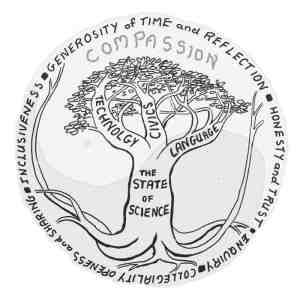
Note: This draft graphic fails to make it clear the experience of
compassion occurs when all these qualities are present. The absence of
any of these qualities means the state of science diminishes, the state
of non-science is enhanced.
-Who knows what I do best? Sometimes I wake in the night doubting the
value of this work I do. I remind myself to rest my consciousness in my
out-breath, that great teacher of trust. When I am able to do so I am
reassured. It soon seems OK that I only know that the evocation of a
sensed greater wisdom and intelligence seems to bring wonderful riches
even as my waste and pollution diminishes.
Niki “Three key
ideas:
(1) People are happiness seekers – we tend to shy away from
fear...anger does not create new and just attacks the old ... our
happiness enables us to become attractors......a paradox of human change
is that when people are feeling positive they are more able to embrace
negative information...
(2) People are social...do what you hope others will do... draw
attention to positive norms..tell tales of joy...produce images of
yourselves being as you would like to be...
(3) People want to be good... studies show children have strong sense of
fairness and protecting innocent others...how do we work with people’s
desire to do good? It is important to have moral conversations.. frame
issues in moral terms...”
Response: My
notes are sparse and my gratitude to Niki is deep. I am one of the
several thousand people who have watched her 15 minute video Psychology
for a Better World.

https://www.youtube.com/watch?v=2zExibEV_PY
I am
grateful for her work synthesising the research reminding us of the core
psychology that has sustained human kind since our first glimmerings of
consciousness. Just hearing her speaking of her work refreshes and
affirms my own work. I am glad for our children even as I am inspired by
them. I am excited as I see possibilities of how I can build on the
insights that Niki provides.
Indeed I am enthused by all this talk at the conference of the value of
developing a sense of place. We now seem so close to embracing civics as
the central pillar of our society.
Sure the ego
deceives us with false hopes and can easily make an inch a mile. Smile.
This conference is a trace element of our national consciousness.
However maybe, just maybe, people can now catch glimmerings of the
bounteous vision of existence that is inherent in the Sustainability
Principle of Energy? Can there be a greater tale of joy?
And all
these reminders that we are moral beings. Surely embracing our essential
moral state provides the greatest connection we can know with the
universal potential? Perhaps, just perhaps, people are close to
embracing the Compassionate Curriculum
Framework, which liberates us in
the awareness and celebration that we all scientists to some degree and
consequently we are all artists to some degree. Thus true creativity and
civics can flourish.
Perhaps soon we will smile at the trickery of the
ego as we recall how the NZ’s National Education Curriculum Framework
once deemed 99% of us are non-scientists and non-artists while producing
some of the most unsustainable people in the history of humankind.
Robina
McCurdy – The importance of school grounds as enriching learning
environment.
“Quote
from Terry Krautwurst - Our
challenge isn’t so much to teach children about the natural world but
to find ways to nurture and sustain the instinctive connections they
already carry. ...bringing nature into school grounds... learning through
landscapes.. . seed programmes... rongo in playgrounds... localising
food project..”
Response:
Right on, Terry, though perhaps I might rephrase it to say our challenge
is to remain mindful we are the natural world. I am a school
cleaner/caretaker involved in recycling, composting, chooks, adjacent
community garden, reforestation and similar activities.
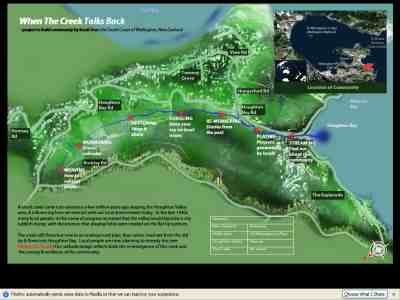
click to view
Part of a project to make Houghton Valley a work of fine art in knowing
one's place and enjoying resilience.
I am attending
this seminar because I am keen to learn ideas of how these learning
opportunities can become more sustaining. Thank you for your nuggets,
Robina. Much appreciated.
However I
wait, pen poised, for insights into the importance of school grounds as
enriching, learning environment. I gradually realise they will not be
forthcoming. Perhaps it is because I see school grounds as places that
simultaneously reflect and generate the wider society. It is not so much
a matter of “bringing nature into school grounds” as of using school
grounds to study our place in the universe(s).
So what is
perhaps the greatest lesson that my school, and most schools in New
Zealand, teaches? They teach it is most important to own a private car!
It is so important that the main entrance is usually devoted to
“free” carparking, as are the surrounding streets. Few teachers
venture to the place of cars in our lives and inspire students to ponder
the big questions. What right has this generation to burn such a rare
and valuable gift as mineral oil? Who really pays for the car’s
extensive and costly infrastructure? Is it better to spend over $250,000
providing three “free” carparks on the nearby street or would that
money better be invested in a new classroom or retrofitting the school
with more energy efficient systems?
Why do parents drive their cars through the front fence, the main
gate post, the entrance frame and over safety cones?
Similarly
few teachers discuss the school’s place in the sun and our nation’s
ecology. Why did our ancestors in the early 1930s construct the original
classrooms aligned to the North with roofs shaped to flow with the
prevailing winds? Why does every building constructed since then
increasingly align away from the sun and destroy the school’s solar
potential? Why are most buildings constructed since 1990 prone to water
leaks? What has changed in
our minds? What is the place of the wires and pipes of the local utility
grids and how do they connect us to the lands, waters and air? Who
controls those grids and what reason do their owners have to care
whether we live or die?
We know that sun-sourced lighting significantly improves our learning
capacity – so what is happening now as we further darken classrooms to
make modern electronic screens more visible?
Are we not at greater risk of our classrooms becoming Plato’s
allegory of The Cave? https://en.wikipedia.org/wiki/Allegory_of_the_Cave
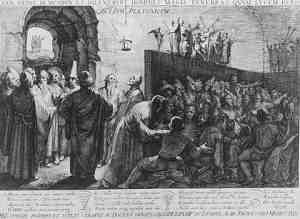
And what
about the lessons provided everyday for years on end by “Meridian
Energy” frisbees lying around and by the stickers and posters that
adorn school buildings imploring students to “conserve energy”,
“save power”, “save the planet” etc. Is energy just a product or
a corporation? Since when can humans save energy? Whose notion of energy
is this? What do the great
principles of physics inform us of the nature of energy? Whose notion of
“power” is it? What is the real relationship between energy, power,
fossil fuels and electrical products? And surely the planet can survive
without humans? Should we not be more concerned that our own actions
conserve the balances and flows that sustain humanity?
Robina
“Jason
Clarke ... first NZEE conference in Hamilton in 2002..”
Response: Robina’s mention of Jason’s address warning us of the
“dark side”, which is our contemporary PR industry, sends me sitting
bolt-up right with keen attention. However few in the room seem to know
of or recall Jason’s insights and the discussion dissipates.
I will never
forget my excitement back in 2002 as Jason detailed to the 300 delegates
present how the PR industry is founded in amorality and while teachers
focus on communicating through the intellectual elements of the brain,
the PR industry bypass this completely and communicate directly to the
emotional and primal centres of the brain. I recall the audience nodding
knowingly and so I expected a great flowering of the awareness of how
vulnerable the Environmental Education industry is to being the
spearhead of our psychopathic corporations into our communities. A
decade on, his insights remain unheeded. The mean ethos of the private
corporations now fills the vacuum caused by the absence of the study of
civics in our schools. Our graduates are more unsustainable and at risk
than ever.
Matt Morris
– Shaking up the Sustainability Curriculum at UC
“...very
difficult to establish a degree in sustainability here at Canterbury
University... so what we have done is selected subjects from both the
Arts and Science degrees so that together they form a shadow degree in
sustainability...”
Response: Nope. Not much hope here. The first thing I encountered at the
conference were banners proclaiming “Education for Sustainability.
Taking action for our environment.” I am doubting my memory now that
they were UC banners. Matt seems painfully aware that the notion of a
“shadow degree” is not very sustaining.
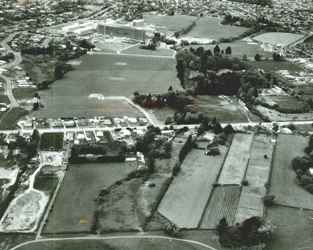
I originally
came to Ilam campus in 1966 when builders were still constructing this
lecture room, the surrounding paddock was mainly empty and only the
Engineering faculty was fully resident at Ilam. I came here because I
wanted to live closer to the Southern Alps and because a very
influential teacher had convinced me “you cannot go wrong by studying
to be an engineer”. I soon discovered I was not the engineering type
and defaulted to the only arts type subject at Ilam – psychology.
Since then I
have worked with many extremely well-meaning engineers, some with a
strong interest in Environmental Education. Too often I came to realise
the fine intentions of these engineers are completely subverted by their
language, especially their notions of energy, power, electricity,
minerals and greenhouses. I put my hand up and ask Matt why the
Engineering school is not involved in this shadow degree. After all the
UC has long prided itself in being a centre of excellence in engineering
and engineers shape so much of our landscape, buildings,
appliances etc.
Matt replies
the Engineering school is involved in many sustainability projects but
unfortunately every minute of the Engineering curriculum is already
packed out.
Could it be
that a “shadow degree in sustainability” is really just a superb
piece of corporate spin? Could the exclusive nature of our Engineering
school be actually putting its students very, very wrong?
Friday
morning.
Key note speaker Greg Smith – Grounding of sustainability
education in place and community.
“...Three
principles –
(1) Don’t eat seed corn;
(2) Don’t dump waste in water or air;
(3) Don’t let others have so much that others cannot live secure and
meaningful lives.
... we must nurture citizens who understand the nature of humanity’s
current circumstances, feel connected enough to their place and
community to want to get involved, have the capacity to analyse and
solve problems and have the confidence to take action...”
Response:
Wow! At the initial welcome the conference organisers spoke of how they
hoped it would result in a shake-up in Environmental Education. Well,
maybe, just maybe I am witnessing a sustaining expansion of awareness of
our place in the universe. I am ticking the box of the use of the
“citizen” symbol many more times than I had imagined I would.
Greg’s statement is essentially a call for our schools to be founded
in the study of civics. I had not thought to include the “place”
symbol in my list of boxes for ticking and it has turned out to be the
central theme of nearly all the presentations I have attended. Civics.
Place. Without a sustaining sense of place, we cannot enjoy civics.
Without civics, our place will not sustain us.
Greg “What is
missing in the classroom is the relationship with the environment
students live in.. what happens outside the classroom comes into the
classroom...work cannot be done by teachers alone.. connecting students
to where they live...students expected to bring in experts and develop
own community service...USE THE CITY BUS SYSTEM...students learn to
identify problems, issues, players, attitudes, beliefs, values,
solutions...they are not afraid to ask questions...
Challenges: teachers becoming curriculum creators; linking unpredictable
learning experiences; bridging disciplines; Admin must trust teachers
and students in non-classroom; expanding the definition of legitimate
learning experiences; engaging other agencies... ”
Response:
STUDENTS USE THE CITY BUS SYSTEM. I write this in capitals. This is a
profound and radical notion in our fear-driven, car-addicted culture in
which students are disconnected and insulated from their place by an
oppressive structure of “safety” legislation, “school buses”,
“adult minder ratios” and private car fleets.
I have
interviewed the 80-90 year old graduates of our school. They describe
walking miles and travelling on trams by themselves or with small groups
of students to go to cooking, woodwork and swimming lessons. They
thought it normal behaviour to be selected out as a seven year old and
instructed to walk over the hill and down to Lyall Bay, catch a tram to
downtown Wellington and then find their way up the stairs of some
unknown building at the end of Lambton Quay to visit the dentist.
Similarly they would have to make their way to and from the swimming
pool in Oriental Bay, the scariest thing being the seaweed that the
harbour waves tossed into the pool.
They speak of how as children they used to attend classes on civics in
the local community hall. They describe with intense sadness how the
advent of the car in the 1950s destroyed much of the local community
life and note how little sense of place people seem to enjoy these days.
And with that loss of a sense of place comes FEAR.
During the
break I thank Greg for his presentation with its focus on the importance
of place and practical examples of how students can develop the art of
civics. I offer him a summary booklet of my work with its preface:
Tzu
Lu said: "The
ruler of Wei wants you to become a member of his government. What will
you work on first?" Confucius said: "The correction of
language use [rectification of names]." Tzu Lu said: "You
don't mean it! Why should that be your first priority?" Confucius
said: "If language is not used correctly, then what is said won't
be understood. If what is said is not understood, then the work of the
state cannot be carried out successfully. If the work of the state
cannot be carried out successfully, then the rules of propriety will not
be observed and music [that is, culture] will not develop. If propriety
does not prevail, and if music [that is, culture] does not develop, then
criminal punishments will not be imposed in accordance with justice. If
criminal punishments are unjust, then the people will be disoriented in
their actions. Therefore, the Chun-Tzu must see to it that
language is used correctly and that what he says is carried out in
practice."
I suggest
that above all we need to know our true place in our language/symbol use
and the booklet provides unique pointers as to how we can use the
principles of physics to transcend the paradox so that our symbol use
simultaneously reflects and generates our state of being.
We both seem to agree about the power of words and I add the caveat as
we part, “Of course we are our symbols”. Greg smiles ruefully and
says, “Yes, I figure this will be my last major trip”.
I guess Greg
also knows that modern fMRI technology confirms the existence of potent
mirror neuron systems in our brains. These provide extra meaning to that
inconvenient ancient adage “Actions speak louder than words” - even
as words simultaneously reflect and determine our actions. Our teachers
have yet to catch a glimmering of the implications of how their
lifestyles are amplified by our mirror neuron systems in the learning
process to form their most profound teaching activities. Smile.
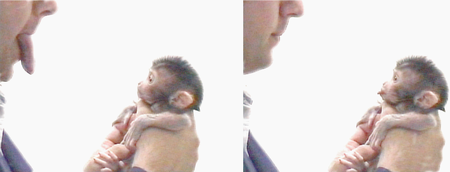
Our mirror
neuron systems in action
I hurry to
grab a cup of tea before the last presentation of the conference and on
the way I run into the man himself. I had determined to attend his
presentation within minutes of chatting with that man seated alone under
the lone tree on the lawn on the first day. The time has come for David
McKay and he stands looking tense in the foyer.
“I’m looking forward to your presentation, David” I say.
“I am nervous because there will probably be some pretty high-up
academics in the audience who aren’t going to like what I have to say
- they going to be critical of me.” he replies.
I pat his arm and try to reassure him, “Just remember that our
universities are stuffed – just don’t take them too seriously. I
will support you.”
David does not seem reassured.
By “stuffed” I mean more than the 1913 meaning of “stuffed shirt
-"pompous, ineffectual person" (1913).” I mean the
institutions are broken, not fit for purpose as universities. Their lack
of morality and general exclusiveness corrodes and undermines the
integrity of their intellectual endeavour.
I realise I cannot reassure him. I am clearly too shy, inarticulate and
radical to be of much help. Also I know David has much invested in being
approved a PhD whereas I have come to believe that the global PhD
community is one of the most unsustainable groups of people on the
planet. These people create the sophisticated devices such as immoral
ETS, the exclusive copyright regimes, the deranged derivatives
trades,
the insane weapons systems, the crippling hidden car subsidies etc. The
statistics of their gross waste prove that smart people can be but are
not necessarily intelligent. Their cleverness makes them all the more
vulnerable to the ingenious deceits of the ego.
As mentioned
at the beginning of these reflections, David and I had quickly
established during our short encounter on the first day that both of us
conclude that the Euro-American education model, including Environmental
Education, is unsustainable. It turns out we came to the same
conclusions by very different ways.
David is informed by the interviews he did with 14 Maori elders about
their notions of sustainability as part of his PhD.
I have been privileged to visit tens of thousands of Christchurch and
Wellington households for decades as a meter reader and have used those
insights plus the great principles of physics/psychology to analyse the
transformation of the English language over millennia.
I am concluding that the evidence of the last three centuries of global
European hegemony, this brief period becoming known as the Anthropocene,
correlates with the adoption of totally unsustainable language. The
Anglo-American education system enabling this system of vast waste and
despoliation is the pure manifestation of the elements of psychopathy
and psychosis that reside in each of us.
I have not
discussed with David how my research indicates the Alma Mater Studiorum
of his PhD, the Centre for Sustainability (CSAFE) at Otago University,
is an exemplar of this fatally flawed education system.
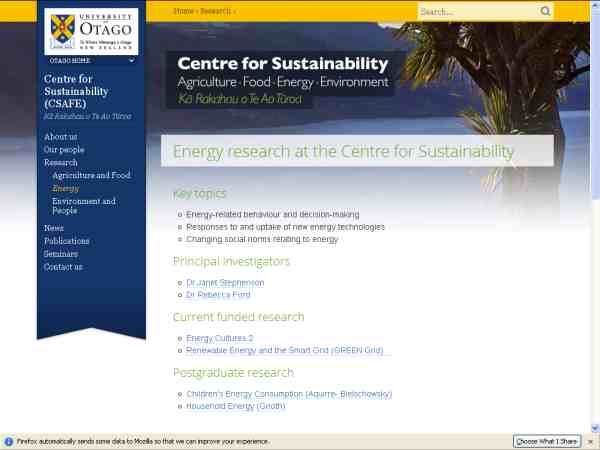
Click illustration to see original page.
A quick scan of
the use of our prime symbols by CSAFE at http://www.otago.ac.nz/csafe/
reveals they form fundamental frameworks that work to deny
change/stewardship on scale. They thus will tend to generate misery. For
instance, consider the profound denial inherent in all the following
confused statements about the nature of energy:
“CSAFE Centre for Sustainability Agriculture Foods Energy
Environment”
“Our research covers the interrelated streams of: Agriculture
and Food Environment
and People Energy”
“ Context Effects on Household Energy-related Behaviour Key topics -
Energy-related behaviour and decision-making - Responses to and uptake
of new energy technologies -Changing social norms relating to energy”
“Current funded research Energy
Cultures 2 Renewable Energy
and the Smart Grid (GREEN Grid)”
“Postgraduate research Children's Energy Consumption Household
Energy “
“..children’s energy literacy (knowledge, attitude, and intended
behaviour), electricity usage in everyday life, family dynamics and
negotiations...”
“ Completed research Energy
Cultures ..”
“The Energy Cultures framework was developed by the research team to
help understand the drivers of energy-related behaviours...”
“energy-related problems..”
“(physical aspects of a home including the form of the building and
energy-related technologies) and energy practices (energy-related
actions)”
“...potential for significant energy savings...”
“Co-funders:
Energy Efficiency and Conservation Authority, Z Energy, Mercury
Energy...”
“...in depth knowledge of electricity networks and power management,
to ensure that New Zealanders have access to reliable, safe, and
affordable renewable energy.”
“The reliability and quality of power supply, the safety of the
electricity network, and the cost of power (as driven by peak demand and
energy utilised) all need to be managed in balance with the different
types and requirements of electricity generation and demand...”
“... new options for supply of renewable energy...”
“Environment and People”
“Commissioner for Environment”
“...knowledge generated by scientists and social scientists...”
Even this
precursory survey of the Centre for Sustainability indicates it is the
embodiment of the fatally flawed equation that has enabled the dangerous
excesses of the Industrial Revolution:
Energy
=fossil fuels = power = electricity = Bulk-generated electrical
products.
The institution is perhaps better
symbolised as the Centre for Unsustainability.
It is
humbling to reflect on this brief survey of the Centre for
Sustainability. It forms a reminder of the incredible trickery of the
ego, for probably not one of the many well-meaning, highly literate and
numerate people at the centre ever pauses to reflect on this pure
non-science. Perhaps I should point out that the deceits of the ego are
incredible because the trace elements of conscious thought can never
countenance the vast scale and influence of the subconscious. These
subliminal forces of our psyche are beyond the credence of conscious
thought.
These
learned professors and doctors are the apex of an education system that
produces a people that accepts it is as normal and sane that our
Minister’s of the Crown proclaim themselves “Minister of Energy”
and even “Minster of Energy and Resources”. Smile. Such is our
nation’s complete and utter denial of the Conservation Principle of
Energy - the greatest principle of physics. Since when did energy cease
to arise again and again and be the ultimate re-source? Since when did
the Conservation Principle of Energy not hold?
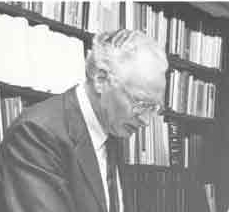
New Zealand's
first Minister of Energy 1978. He subsumed the The Ministry of Energy
Resources (a nonsense) into the Ministry of Energy (an almighty
nonsense)
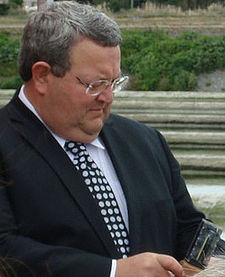
The Honourable Gerry Brownlee - New Zealand's first Minister
of Energy and Resources. Currently Minister for Canterbury Earthquake
Recovery
Sheebah
Mirisa – Improving bio-cultural conservation through sustainability
education in Papua New Guinea.
Response:
Hmmm. Another arcane English title for these lovely learning activities
in PNG that are really very simple –knowing your place in the universe
through knowing the language of your ancestors in your particular place
on earth and being reminded on the joy of caring i.e. the development of
civics
Sheebah “Schooling the World – the White Man’s Last Burden by Greg
Smith”
Response: I laugh out loud and Sheebah’s PNG colleagues look at me in
puzzled, possibly offended way. No. I am not laughing or diminishing the
desecration of their lands and culture by European colonisers. It’s
just that as I more understand and embrace the trickery of the ego, the
more humour I find in the scale of the self-deceits of us Europeans. We
revel in our smug sense of supremacy and enlightenment. We generate such
hilarious, sophisticated rationales for saving the world from the morass
of problems we create. Greg’s publication sounds like it might be the
perfect segue into David’s presention.
David McKay
– Living and learning as part of the environment: An
epistemology and pedagogy informed by Maori culture imbuing
sustainability.
“Living
& Learning ‘as’ or ‘as part of’ the environment.” –
subtitle on screen
Response: Ah, this looks to be a man who is questioning and struggling
with our use of symbols. Perhaps David employs inverted commas to form
alerts to make us stop and make us reflect on the possible meanings and
the power of the words encompassed. Perhaps they represent a compromise
between David and his PhD supervisors, reflecting the worlds of
difference between those who believe “Humans and our environment”
co-exist and those who believe “Humans are the environment”. The
former belief works to demoralise and separate each of us from all. The
latter belief reflects acceptance of change/stewardship and thus works
to unify us with all.
David “Western
constructs...based in reading and writing...Indigenous ways of thinking
are the key to sustainability...”
Response:
Yeah, this is true when people have lived in a place for millennia and
the resources and minerals of that area remain conserved so they can
continue to sustain the descendents of the people for millennia. I am
concluding this act of conservation is usually a significant sign that
their use of symbols is sustainable. The people embrace the principles
of physics and thus have a potent sense of place.
David “There has
been no meaningful change since Rachael Carsen wrote Silent
Spring...The required shift in thinking cannot be made using our
contemporary technocentric mainstream... ”
Response:
1962. I am about sixteen years old, a farm boy born and bred amidst the
rich Rimutaka forests and lush swamps of Lake Wairapapa. On still nights
my dreams are laced with the echoes in the hills and the stars of the
murmurings and chatter of my beloved Wairongomai creek. I feel strong
and sustained in this world.
1962 and Silent Spring shatters my teenage innocence of the malignant nature
of the modern corporation. I, like millions of people around the world,
react with horror to realise the silent, unseen ways our minds are being
manipulated. The politics of greed and fear, already so manifest out
there in the terrible World War 11, the Cold War and the Nuclear Bomb...
suddenly it is also manifest in our ecology in ways that infiltrate and
threaten us from within the depths of the cells forming my own body.
The modern Environmental Movement was born and became a great force in
our lives.
Fifty years
on I now understand the ancient wisdom that reminds us of the great
paradox that every reaction perpetuates that which is reacted against.
Action and reaction are essentially the same. I agree with David that
there has been no meaningful change in that we continue to fail to
transcend this paradox. This means the Environmental Movement, of which
I am so much a part, contains within it the seeds of our destruction.
There are deep psychological reasons explaining why the unprecedented
waste, the pollution and the destruction of vital minerals of the past
three decades correlates with the advent and expansion of the Green
Movement. Analysis indicates the various agencies of the Movement are
uniquely designed to spearhead the unsustainable ethos of Carbon Trading
(the ETS), the Electricity Industry Reforms, Renewable Energy,
Environmental Protection, the National Education Curriculum Framework,
Smart Technology, the Greenhouse World etc into our communities. The
inconvenient truth is these agencies can accomplish what the much
reviled Banker-Trader oligarchy can never do.
This tends to be what happens when we fail to embrace the human
condition with humility and do not live the great principles of physics
David
“...Sixteen questions were posed during face-to-face interviews with
14 tangata whenua participants, 7 male and 7 female, representatives of
hapu and iwi throughout Aotearoa, New Zealand...about their ideas of
sustainability... one said, “The future is now”.. There is an
emergent epistemology –includes notion that is no such thing as
education...”
Response:
Yes I understand “The future is now.” Every action, including every
thought, word and deed, effects the balances and flows of the cosmic
flux in ways that alter how energy is manifest to future generations.
And I think I understand how it could be that a society can be sustained
without the concept of education.
I am aware of how the notion of “education” easily divorces us from
reality by working to diminish both our awareness of the moment and the
sensation of every action being a profound moral act and learning
opportunity.
Notions of “education” tend to generate the belief that the
acquisition of knowledge is an end in itself rather than a way of being.
Life and knowledge are separate.
Science becomes a way thinking rather than a state of being.
Consequently we forget both how the state of science arises from the
state of compassion and how it enables us to develop all manner of
sustaining arts such as wise language and civics.
David “..Maori
associate energy with potential...”
Response: What?! Did I hear right?
This is so exciting. I have spent thousands of hours this century
asking the question, “What is energy?” I soon realised almost everything I
had been taught by our education system about the nature of energy lacked science on scale. All the
“energy experts” I consulted preached nonsense. Much is obvious
corporate spin, such as the prevailing belief in the equation that
energy = power = a few commodities. And the equation of energy = fossil
fuels conveniently both obscures their finite nature and eliminates the
atmosphere from the combustion process.
The notion there is energy and there also exists renewable energy is a
complete denial of the Conservation Principle.
The confusion of energy forms with energy perspectives is another great
denial of the essential nature of change, as is the symbolisation of
kinetic energy as separate from rather than part of potential energy.
Each belief about the nature of energy reflects a denial of
change/stewardship. Combined they form a miserable vision of existence
resulting in desperate, deluded behaviour. “Energy efficiency” is
associated with loss and deprivation.
I too, like these Maori, have concluded that energy is best understood as
the universal potential. This realisation of the universal continuous
transformation opens up such an amazing, bounteous vision of reality in
which stewardship is a joy.
David “...research
resulted in the development of a representative model and framework: Learning for Life – this diagram illustrates all the requisite and
interconnecting factors that enable resilience to occur:
Interconnections and relationships;
Self identity, wellbeing and actualization;
Community Resource wellbeing –involving communication, collaboration,
cooperation;
Transferral and Continuance – how knowledge is transferred;
Survival skills -environmental competence (sensitive, aware, literate,
capable, critical thinking, practical, adaptive)”
Response: Dang. Can’t convert this complex diagram quickly into
coherent notes. Hope David puts it up on the web soon. It resonates deeply in
me. It feels holistic. Sure there is a lot about Maori culture that is
unsustainable too. It too is expansionist; the mini-ice age of the
sixteenth century sorely tested its resilience; and major species that
flourished on this land for millions of years perished with the arrival
of Maori. However Maori culture, unlike European, did not make a virtue
of burning our indigenous forests, destroying the soils, destroying
precious minerals, decimating nearby ocean life and polluting the rivers
and air on scale. To my knowledge Maori culture did not rate these
destructive activities as signs of “a growing economy”, “a healthy
GNP”, “proof New Zealand is working” and "a loyal British
dominion".
O.K. European academics could easily construct David's diagram but
perhaps, just perhaps, this diagram is born of an indigenous wisdom born
of a millennia of deep, sustaining connections with the mountains,
valleys, plains, rivers, lakes, oceans and skies of this place, Aotearoa
in the Great South Pacific Ocean.
David “This
cannot be communicated through the Western framework..”
Response: Smile. I imagine at this point David is imagining any
high-powered academics present are fuming at the perceived arrogance of
this statement, marking his thesis down and getting ready to skewer him
with barbed questions at the end of his presentation. I assemble a few
questions in case I can get to support this statement.
Question - This Learning for Life framework, or if you like, this model
enabling the development of civics, is founded in notions of
collaboration and cooperation. Western culture, including these
institutions we call “universities”, is founded in the antithesis of
this – exclusion, copyright, competition, secrecy and notions that
science is amoral. Do you deny this?
Question - It seems implicit in this model that knowledge is our common
heritage. By comparison, it is implicit in Western culture, including
these institutions we call “universities”, that both knowledge and
students are simply commodities and debt generating devices, existing
for the private benefit of an oligarchy. I ask you. Surely there is
overwhelming evidence that this is so?
Question – The Western cultural framework has generated a society so
dependent on the extraction and destruction of one mineral that if it
were to become unavailable this morning our society would instantly
collapse into chaos and warfare by this evening. I refer to our abuse of
mineral oil. Where is the resilience in this?
In the event David finishes his presentation with no time for questions
from the audience. I have alarm bells drawn around one note:
“Approaches to Environmental Education informed by Maori culture.” I
would have like to ask him if the notion of education, let alone the
notion of Environmental Education, even has a place in the Learning for
Life framework? Surely Environmental Education reacts to and thus works to
perpetuate the fatal flaws of the NZ National Education Curriculum
Framework? Surely it obscures and denies the learning process by which
we develop the arts of language and civics?
The
conference reassembles for an introduction to Open Space Technology
format facilitated by Margaret Jefferies. Those who are passionate about
some idea or topic of the conference are asked to nominate it and lead a
group discussion on it. I am excited when one delegate (a preschool
teacher) asks for responses to David McKay’ presentation. Yes, perhaps
the shake-up is indeed occurring.
OPen
Space “Responses
to David McKay’s presentation.”
The format of the group discussion is already operating when I arrive. I
am a very slow reflector. So I am surprised and delighted at the space
allowed. People respond to each person’s contribution by offering them
bows of gratitude and respect. A long silence then ensues before the
next person makes an offering.
It is my experience that these gifts of gratitude, respect and silence
enable some most meaningful insights. This is because the more
introverted, inarticulate and deeply reflective people amongst us only
thrive and give voice in places filled with the open space of silence.
These people tend to give greater time for reflection. This enables
wiser and unthinkable responses to emerge from within.
David uses
one of these growing silences to give an exposition of the hongi and how
it involves the exchange of the breath. Smile. Before one can share the
breath fully one must know one’s own breath.
The student of the breath soon learns the silence at the end of the
out-breath is the act of greatest trust we can know. In that place where
we have given the breath away we are opened most fully to the wonderful
potential of the universe(s). In that moment of great trust when we have
given all away we create the space in which we are recharged in energy.
While we work hard to create a vacuum, the universe(s) fills it with
ease. In the silence between the breaths unimaginable answers can occur
to questions unknowable.
There are no more deep silences and so perhaps David does not get to
hear the slowest, deepest responses of those present.
We are here in this group because his presentation resonated deeply in
us. Perhaps his work speaks truths that do not require defending or
explaining? Smile.
FOOTNOTE:
Link to
David McKay's research -
University of Otago Centre for Sustainability
Education
for Survival, Resilience and Continuance: Mātauranga Taiao, Māori
and Indigeneity
Open
Space “What are
the essential messages of this conference?”
The leader of this Open Space group is keen to assemble them so he can
better share them in a succinct way with his home community.
Everyone else seems to have had their say when I arrive. They look to
me. I scramble now to remember what I said, just as I scrambled then to
find the words. I know I remarked that I am still somewhat stunned to be
welcomed into discussions, as at previous conferences I was pretty much
persona non grata because I dared to question the role of Environmental
Education (including Enviroschools)
and to propose alternative education programmes and ways of being.
I recall
stating that if I am to summarise the great message of this conference
in one word, then it is in the word “place” –an idea that was
amplified on by nearly every speaker I heard. This, for me, is an
exciting and radical change, for the development of a potent, sustaining
sense of place in the moment involves us intimately with our psychology,
languages, physics, history, future, geography and ecology. In brief,
this focus on place-based learning means we are now potentially very
close making the development of civics the central aim of our learning
processes.
I am aware a
Green Party MP is a member of the group. I have long attempted to engage
the Green Party hierarchy in a deeper awareness of civics. So I give the
example of how a sustaining sense of place involves knowing how all our
electrical grids enable us... how they connect us with our most distant
skies, mountains, valleys and rivers... how our use of the grids effect
the balances and flows of water, air and soils that sustain humanity.
Most New Zealanders are now oblivious to how local communities across
the nation built and bequeathed on us all a national systems of freehold
local electrical grids with democratic governance structures. Often this
involved considerable sacrifice. Now not one of these 60 civic
structures exists. Our civic rights have been stripped away with the
privatisation of the intelligence of our local electrical potential. Not
one community owns the intelligence of their local grid anymore. Now the
majority of New Zealanders are oblivious to their place because they
were either born after 1980 or are immigrants. The knowledge of our
history that sustains civics has been destroyed.
I probably
mumbled something about the sad role of Green Movement in all this. I
would have been thinking of how the burgeoning Environmental Education
industry these last three decades with its focus on ecology has helped
destroy the state of science in our communities and thus civics. It has
done this by propagating language profoundly in denial of the principles
of physics and erecting silos of the issues so, for instance, climate
care educators and dwelling care educators teach directly against each
other. In supplanting science and civics in our schools Environmental
Education has created vacuums in the teaching of the history and
psychology of place that are filled by greed-driven corporations.
While observing how I have found this sad situation depressing to
observe I like to think I made it clear to the group that I find this
conference with its focus on place-based learning very exciting for our
children. It marks a significant shift towards the study of civics.
It’s just a pity so few teachers are present to be part of the change.
So it is
true. The rumour that only a couple of school teachers are attending the
conference is confirmed at the AGM. The NZAEE executive seems perplexed.
The two conferences I have attended were in Hamilton (2002) and Auckland
(2006), both sited in our most populated region. Perhaps half the
attendees were teachers. However I know as we sit here a legion of
teachers and their families are driving and jetting great distances
without much thought of how they are converting the amazing wealth
potential of mineral oil into air pollution. I manage to attend
conferences though it costs a couple of weeks of the take-home pay from
my part-time school cleaner job. Many teachers could be here if they
really desired.
With no
explanations forthcoming I dare to put my hand up in the last moments of
the AGM and suggest the absence of teachers is a predictable result of Enviroschools – perhaps it has in some way supplanted the NZAEE.
Could it be that Enviroschools
now conforms what teachers think Environmental Education is about?
Eyes glaze over and the AGM ends.
My suggestion is founded in over a decade of observation. I observed the
single-minded way the NZAEE used its considerable authority to promote Enviroschools
at the expense of other education programmes and civic process. Its
authority extended deep into political parties, our universities, local
authorities and key government policy making circles.
By about
2007 the NZAEE had helped facilitate funding in the tens of millions of
dollars for Enviroschools
through direct Government funding and through institutions such as our
universities and local councils. The programme was becoming both the
hallmark and benchmark of civics in many of our schools.
Over the last few years I observed the bi-monthly activities of the
NZAEE ceased in my region (Wellington). At the same time I observed Enviroschools
facilitating meetings of teachers from local schools to share ideas
about “environmental education – meetings to which other NZAEE
members were not invited. I have also observed that now even the
suggestion that Enviroschools
could be flawed is instantly dismissed as impossible by passionate Enviroschools
teachers. Could it be that
Enviroschools very conveniently is now the teachers’ notion of
science, civics and Environmental Education?
“Convenient
for whom?” you may be asking if you have skipped most of my
reflections. In summary: these reflections are founded in physics (the
great principles of physics hold and all information is physical) and
psychology (the human ego – the intermediary of our trace conscious
and vast subconscious – is characterised by an ingenious, incredible
capacity for self-deceit and general denial of change/stewardship i.e.
our mortality).
It is an
inconvenient fact for many of us to know that an income of $NZ40,000
puts us in the top 1% of
humankind in terms of personal wealth and our lifestyle is profoundly
destructive and unsustainable. For instance NZers destroy about 38
barrels of mineral oil a day per 1000 people whereas the vast
majority of human beings destroy about 2 barrels a day per 1000
people.
The bad news is our unsustainable behaviour is reflected in our use of
symbols, for ultimately our actions are our symbols. Enviroschools
reflects the state of our culture even as it generates it. Perhaps the
“enviroschool” symbol conveniently frames the worldview of our most
passionate, caring and sensitive teachers so they do not have to
confront the cosmic impacts of our actions? If so, then it is a triumph
of the trickery of the ego that just as a growing awareness of the
importance of place and civics is emerging in the NZAEE community,
teachers are not here to share it.
The good news billions of people lead happy, fulfilled lives without
trashing mineral oil as we do.
As we leave a couple of delegates suggest to me that the absence of
teachers is easily explained – they are now too busy and exhausted by
the demands of the new National Standards. I am aware of the distress
many teachers experience as they struggle to comply with the narrow
dictates of this brutal regime, especially those who know its focus on
numeracy and literacy is primarily designed to convert our children into
mindless commodities, if not compliant cannon fodder. However perhaps
the inconvenient truth is we tend to get what we teach for and our
repressive curriculum is born of our collective lifestyles?
I stand for
hours swaying and flowing with the movements, sounds and smells of the
train’s open carriage. The warm fug of the diesel fumes overpowers any
scents arising from the land around me and I am humbled in the reminder
of this destruction of mineral oil. The flat planes of Canterbury give
way to the naked, beautiful folds of low hills and gorges. Then suddenly
all my senses quicken as I detect the fertile, heavy smell of salt and
the Great South Pacific Ocean bursts into sight. Yes.
The snowclad Kaikouras float high behind me while rich, gleaming green
native plants hang down the hillsides so close I could reach out and
touch them. Seals on the rocks raise their heads as the train roars by
and I wave back to children encapsulated in the absurd little bubbles of
glass and metal speeding past.
Yes this is
my place. How privileged I am to be born in this vigorous land uplifted
in the Great South Pacific. I know beneath the ocean’s surface great
unseen canyons plunge deeper than the Grand Canyon. The mountains and
canyons of our lands and seas are mirrored in the cloud formations
above.
On the ferry I lean against the winds of the Roaring Forties funneling
through the Cook Strait and feel the energy manifest in this place where
the Great South Pacific and the Tasman oceans breathe in powerful
concert twice daily.
I see the grids of tarmac, steel rails and wires laced across the
denuded landscape. Each is alive with intelligence, reflecting our
hopes, aspirations, sacrifices, greed, self-deceits, community, conflict
and general connection with the universe(s).
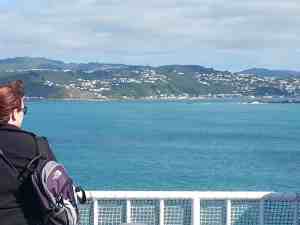
The dots of dwellings appear, dusting the ridges of the hills. I can see
my place overlooking the Cook Strait. I am reminded from afar across the
waves how ephemeral we are – that speck, my cottage, could vanish with
a twitch of the land or a gust of wind.
This is my place under the sun. Aotearoa New Zealand. Raukawa Moana Cook
Strait Te Whanganui a Tara Poneke Upoka Te Ika a Maui Wellington. Haewai
Te Raekaihau Waitaha Houghton Valley... Such poetry, history and wisdom
of my place still remain hidden in our language. I want to know them so
I can better live in harmony with all the flows and balances that
sustain humanity on this planet. I return home fired up to learn and
teach more of my place so all can be sustained. Yes, it’s wonderful to
truly sense one’s place in the universe(s).
I am glad I invested in the 2014 NZAEE national conference! Maybe you
were unable to attend? Then I hope these reflections inspire you to give
the time to browsing the presentations when they are online.
Perhaps you too will be reminded, as I was, that we do not have to
travel the world to find sustaining insights. The answers we seek as to
how we can each lead sustainable lives already exist in our place. They
are only a smile away and are staring us in the face. Titiro. Whakarongo.
Tauawhi.
Updates
and Additions
15 August
2013
Energy
?! - Chapter seven -The Ego and Power
When
we understand that there are as many forms of power as there are forms
of energy we are opened to a vast sustaining potential.
18 July 2013
Energy
?! - Chapter six -The Ego and Greenhouse World
Our
likening of the processes of Earth's atmosphere to the operations of a
greenhouse is a giant conceit that puts humanity at great risk.
21
June 2013
REVIEW:
350.org Do the Maths
Reflections on Bill McKibben's show in Wellington and why Bill is a
genius.
18
May 2013
Energy
?! - Chapter five -The Ego and Global Warming
Our confusion of warming with warming up deprives us of a
wonderful, vital dimension of the thermodynamics of the universe(s).
16
April 2013
Energy
?! - Chapter four -The Ego and Potential Energy
Our estrangement from the universal potential by our division of
kinetic energy from potential energy.
5
March 2013
Energy
?! - Chapter three -The Ego and Forms of Energy
The grand confusion of forms and perspectives of energy.
26
Jan 2013
Energy
?! - Chapter two -The Ego and the Conservation Principle of Energy
The
incredible inconvenience of this great principle.
8
Jan 2013
Energy
?! - Chapter one -Introducing The Ego and Energy
A cartoon exploration of our psychology and the the nature of
energy.
22
Sept
2012
The
Sustainability Principle of Energy
and
The Compassionate Curriculum.
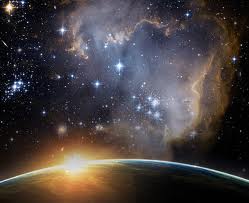  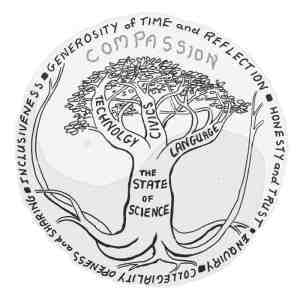 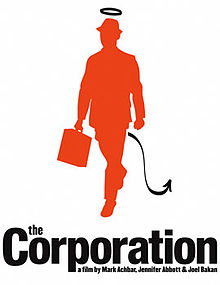 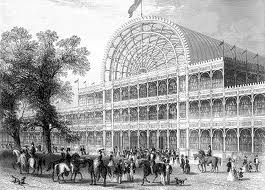 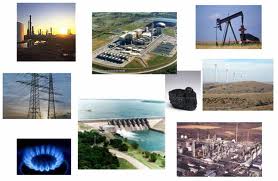 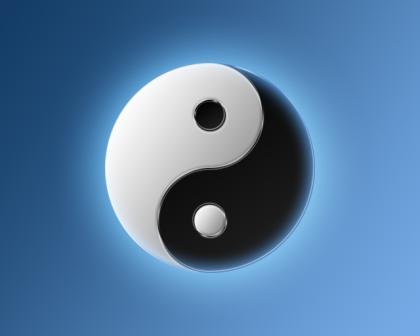
(An Illustrated Essay - A brief
Historical Overview)
3 August
2012
Towards
a sustainable education system
A graphic
comparison of the New Zealand Curriculum Framework with the
Compassionate Curriculum Framework with brief comment
31
January 2012
A
Practical Guide to Enjoying True Hope
An essay
exploring how the great principles of physics can help identify false
hope and enable the experience of sustaining hope.
5 October 2011
"An
Orwellian Climate"
Letters to
Australasian Chief Science Advisors explaining contemporary confusion in
climate care communication (Prof Peter Gluckman, Prof Ian Chubb, Prof
Tim Flannery, Dr Andrew Glikson )
15 September 2011
The
2011 New Zealand Election Campaign
(A
letter to New Zealand people alerting them to the dangers of the huge
hidden yet in-your-face advertising campaign promoting the sale of our
national assets.)
16 March 2011
Thought
Experiments re the Carbon Trading Ethos
(Originally
designed for the Office of the New Zealand Parliamentary Commissioner
for the Environment.)
26 February
2011
Letter to Radio
NZ
(Contains
reflections on broadcasts and ratings of the sustainability of a wide
range of its programmes.)
29
November 2010
The Joy in the Art of Civics
(Brief reflections on this state of being and the dangers of
Environmental Education)
24
November 2010
Celebrating
Our Climate
(Draft one: A climate education framework founded in the Sustainability
Principle of Energy offering an alternative vision of how we can
communicate the role of humans in Earth's climate processes.)
13
October 2010
Conversation
with NZ Minister of Education (Anne Tolley) re the
sustainability of the national education system. Read the Minister's
letter and reflections on the flaws inherent in the Education Ministry's
response.
4
November 2010
Letter
to the Office of the Parliamentary Commissioner for the Environment
Introduction to the Sustainability Principle of Energy with
discussion of the nature of science.
TOP
|